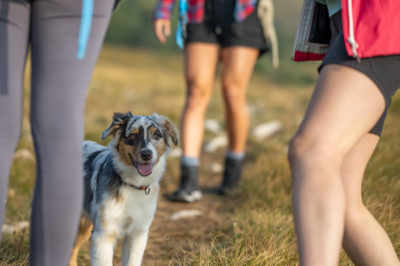
It’s all over the news: the monkeypox virus is transmissible to animals and causes similar symptoms, like skin rashes and lesions, as it does in humans. Now, pet owners are wondering what they can do to keep themselves and their pets safe. And the very first thing is not to panic!
While monkeypox is serious, it isn’t the only human-to-animal transmissible disease. Rabies, salmonellosis, Lyme disease, certain strains of influenza, and various parasitic infections are also transmissible but responsible pet owners typically do a good job of protecting themselves and their pets from these risks with vaccines, preventives, and other proactive behaviors. The current challenge is there aren’t any vaccines or medications to prevent a monkeypox infection.
That said, you don’t have to keep Fluffy inside until the virus is under control, and here’s why:
- Monkeypox is transmitted by:
- Close or intimate contact with an infected person/animal (i.e., skin-to-skin contact with the monkeypox rash, lesions, or scabs, or direct contact with bodily fluids or respiratory secretions).
- A pregnant woman passing the virus to her fetus.
- Being scratched or bit by an infected animal or eating the meat of an infected animal.
- If your pet doesn’t have close contact with strangers and plays nicely with other pets, it’s highly unlikely he’ll contract the virus from others. In fact, he’s more likely to become infected by you than he is by other people or animals.
- There is still a lot of investigative work to be done, but from what we know, there hasn’t been any animal-to-animal transmission of the monkeypox virus.
- Confining your pet to the home won’t do any good if you still go out and risk exposing yourself.
- We need to weigh the detrimental impact strict confinement could have on a pet’s wellbeing against the very low risk of transmission.
All this being said, if you suspect yourself, someone in your household or your pet has been exposed to monkeypox, again, don’t panic! Here are some general guidelines:
- Protect others in the home including pet(s) by limiting contact, covering any skin lesions, and keeping bandages, clothes, or other items that have been in contact with the lesions away from others. Anyone in the home who is not infected (as far as you know) should be the primary caregiver to your pet(s).
- Do not remove your pet from the household. If you think you may have been exposed or are infected, there is a good chance your pet has been exposed as well and could transmit it to other caregivers.
- Avoid taking your pet places where he could expose other people or animals, such as a boarding facility, groomer, training class, or dog park. This even includes your veterinary office. If you think your pet may be symptomatic, call the clinic first and follow their instructions for care.
- When you take your dog outside for a walk, ensure that he stays on a leash and does not interact with other people or animals.
- Keep your cat(s) indoors. To date, there are no known cases of cats contracting the monkeypox virus, but it’s still early.
- Wearing a mask at home could be helpful since respiratory secretions are known to carry the virus.
In summary, there is little information about the transmission of monkeypox from humans to animals and vice versa. A lot of research is yet to be done. If the Covid-19 pandemic did us any favors, it instilled good habits for personal hygiene, physical distancing, and self-quarantine.
Did we mention “don’t panic”?
